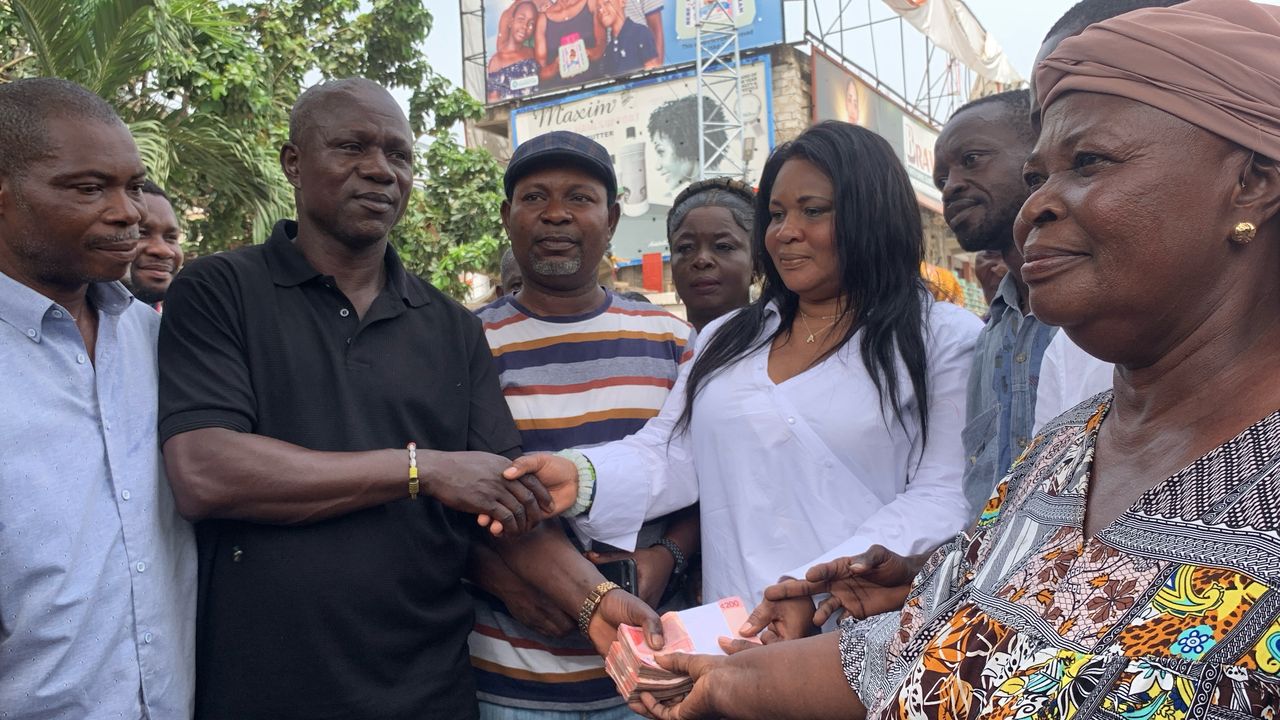Atwima Mponua DCE Targets Indifferent Traders, Calls for Communal Effort in Sanitation Drive

The District Chief Executive (DCE) for Atwima Mponua, Mr. Issahaq Ibrahim, has expressed strong concern over the reluctance of traders and shop owners to participate in communal clean-up exercises, cautioning that indifference towards sanitation is undermining efforts to build healthy and prosperous communities.

Speaking in Nyinahin after leading last Friday’s monthly sanitation exercise, the DCE lamented that while some residents, youth groups, and assembly members turned up to support the program, the majority of traders—particularly those along the main streets—refused to step out and contribute.
Traders Warned Against Neglect
Mr. Ibrahim revealed that many of the shop owners and petty traders who fail to participate also operate without proper permits, yet openly resist enforcement when sanitation regulations are applied. He described this behavior as unacceptable, stressing that such negligence not only puts the lives of residents at risk but also burdens a few committed individuals with the responsibility of cleaning for everyone.

“This attitude must change. Sanitation is not optional; it is compulsory. Those who continue to neglect their duty will face the full rigors of the law without fear or favor. The law itself will work, and when it does, nobody will be spared regardless of political affiliation or social status,” the DCE declared.
Sanitation as a Shared Responsibility
Hon Ishaq Ibrahim emphasized that sanitation is not the duty of government or assemblies alone but a shared responsibility of all citizens. He explained that communal participation is essential if the fight against filth is to be won, warning that diseases such as cholera, malaria, and typhoid will continue to spread if residents refuse to play their part.
“In our daily lives we generate waste, and if we don’t dispose of it properly, we expose ourselves and our families to deadly diseases. Filth kills, and if we do not fight filth, it will destroy us,” he cautioned.
Sanitation and Development
The DCE further noted that poor sanitation has a direct impact on economic growth, productivity, and household income. He explained that frequent sicknesses caused by unclean environments reduce manpower, increase hospital bills, and deter investors from doing business in the district.
“A clean environment means healthy people, and healthy people drive development. If we want Atwima Mponua to progress, then we must all take sanitation seriously,” he added.
Call for Unity and Action
Mr. Ibrahim appealed to chiefs, assembly members, market women, youth groups, and religious bodies to rally behind the initiative and mobilize their communities for the monthly exercise. He stressed that only through unity and collective action can the district achieve lasting results in its sanitation campaign.
“Keeping our communities clean is for our children, our future, and our prosperity. Government will continue to support, but we need everyone to get involved,” he urged.
Rekindling a National Initiative
The reintroduction of the monthly sanitation day, first introduced under the late President John Evans Atta Mills but later abandoned, is expected to revive Ghana’s culture of communal cleanliness. In Atwima Mponua, officials say they will intensify public education while strictly enforcing sanitation by-laws to ensure full compliance.
Although turnout for Friday’s exercise was below expectation, the DCE expressed optimism that with sustained education, enforcement, and community mobilization, the district would become one of the cleanest and healthiest in the Ashanti Region.
“Sanitation is everybody’s business, and together we can transform our district into a model of cleanliness and development,” he concluded.





